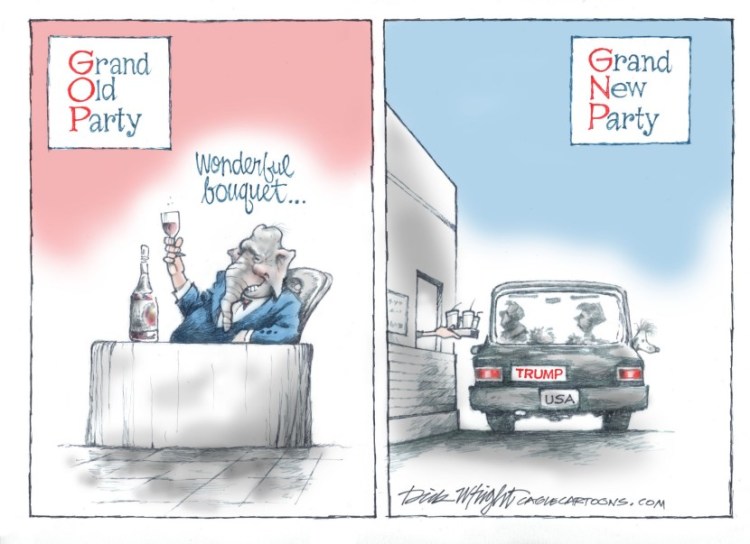The housing crisis and subsequent financial crisis in 2008 was caused in large part by politicizing loan eligibility criteria, advancing social justice objectives over sound economics. Unfortunately, the Dodd-Frank law added even more politicization by creating the Consumer Financial Protection Bureau, which has raised costs and pushed many financial services beyond the reach of the consumers it purports to protect.
The agency was the brainchild of Elizabeth Warren and the top demand of the liberal advocacy groups funded, ironically, by the billionaire inventor of toxic subprime negative-amortization mortgages, Herb Sandler. It was designed to be the most powerful and unaccountable bureaucracy in the federal government. All power was concentrated in one director with a fixed five-year term and not subject to removal by the president. There was no budgetary oversight from Congress, with the agency funded by Federal Reserve profits, and no meaningful limits on what it could regulate.
Fifteen years later we can judge the Consumer Financial Protection Bureau by its results. The number of banks in America, according to the FDIC, has plummeted from 7,500 to 4,500, with regulatory compliance costs falling disproportionately on smaller banks that have been forced to merge into the big guys or go out of business. The St. Louis Fed calculated that small banks have triple the regulatory compliance burden of big banks.
So much for punishing Wall Street.
The bureau’s mortgage disclosure rules haven’t made buying a house any easier or less financially risky — but they have added to the pile of paperwork and substantially increased closing costs. The $25 billion “robo-signing” settlement, for instance, sent at most 6 percent of the total proceeds to victims. Probably less. And the settlement resulted in many mortgages being sold to non-banks with little expertise and lots of incompetence.
A lot of the money the bureau collects in fines and fees ends up in a slush fund called the Civil Penalty Fund to be funneled to left-wing social justice groups.
The agency even tried to do the one thing Congress expressly prohibited it from doing — regulate auto-lending. This bizarre and extremely expensive regulation was overturned by a Congressional Review Act resolution in Trump’s first term, but it was an early example of weaponized wokeness, using a computer model to guess the race of borrowers based on their last names and zip codes and then punishing auto dealers for computer-simulated racial discrimination.
Under Biden, the Consumer Financial Protection Bureau kicked its regulatory activities into hyperdrive. They banned arbitration clauses to open up vast new opportunities for trial lawyer class-action lawsuits. They banned short-term lenders from setting up automated repayments — with a substantial negative effect on the availability of short-term loans that forced people who could no longer qualify for loans to instead overdraw their checking accounts or incur credit card late fees. Then they tried to regulate overdraft fees and credit card late fees.
This chain of regulating everything might sound good, until you realize that this is precisely why small banks are disappearing and big banks are increasingly putting fees on everything. Good luck finding a free checking account anymore if you don’t carry a hefty balance. The result is a two-tier banking system, and those struggling financially are getting denied access to more and more critical financial services.
Fortunately, the agency’s unaccountable structure is also its Achilles heel. The Supreme Court ruled in 2020 that the provision that said the president can’t fire the bureau’s director is unconstitutional, and Trump has swiftly fired Biden’s director, Rohit Chopra, and installed Russ Vought as the interim director.
The lack of any funding from Congress allowed Vought to inform the Federal Reserve that the agency’s funding draw for next quarter is zero dollars. Economist EJ Antoni points out that since the Consumer Financial Protection Bureau is supposed to be funded by Fed profits, and the Fed has been operating at a huge loss, the agency legally must be zero-funded. So Vought is on firm ground.
Congress should also do its part, ideally by formally repealing the agency, but Democrats are likely to filibuster. What they can’t filibuster are Congressional Review Act resolutions, which are privileged and can permanently repeal the agency’s most expensive and destructive midnight regulations from last year.
Whatever rules Congress doesn’t repeal, Vought should formally rescind. And then close up shop.
Phil Kerpen is the president of American Commitment and the author of “Democracy Denied.” Kerpen can be reached at phil@americancommitment.org.






